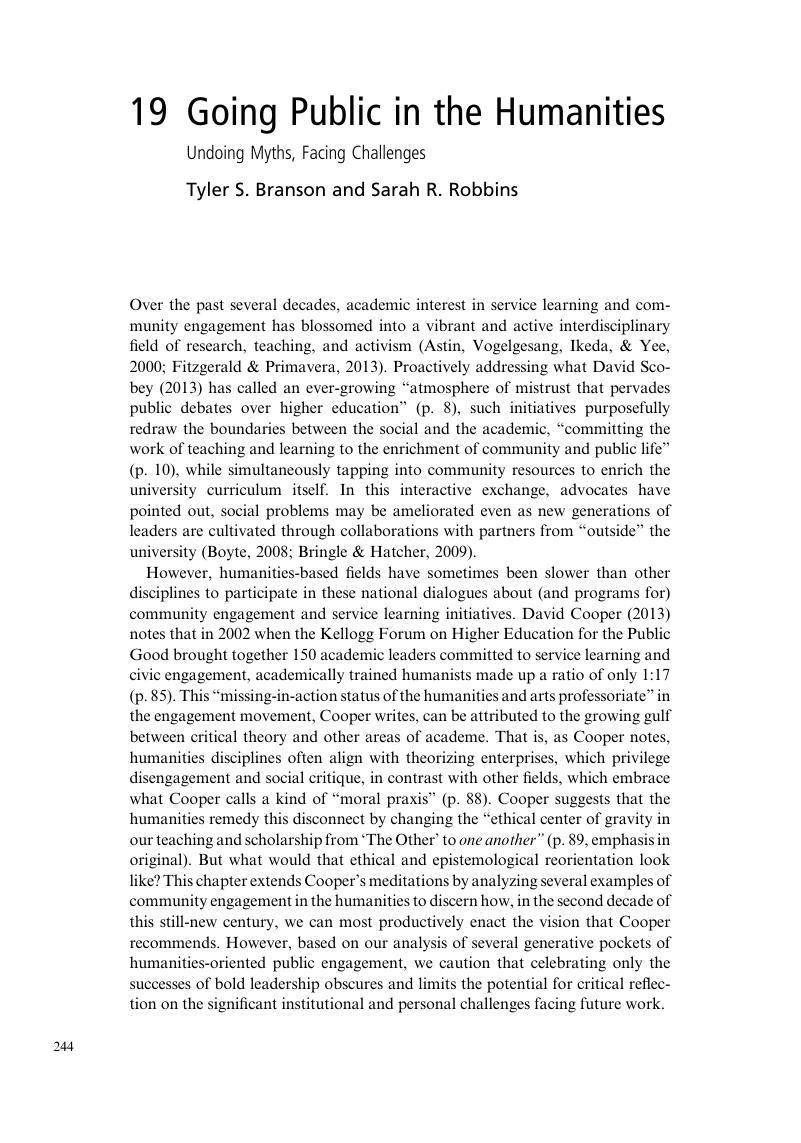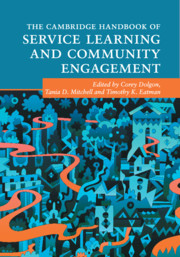Book contents
- The Cambridge Handbook of Service Learning and Community Engagement
- The Cambridge Handbook of Service Learning and Community Engagement
- Copyright page
- Contents
- Figures
- Tables
- Contributors
- Preface
- Introduction
- Part I Histories of Education and Engagement
- Part II Best Practices and Pedagogies
- Part III Engaged Teaching and Scholarship across Disciplines
- Introduction to Part III
- 19 Going Public in the Humanities
- 20 Knowing and Being Community Engaged in the Social Sciences
- 21 Artistic Practice and Engaging the Public
- 22 Women’s Studies and Community-Based Pedagogy and Scholarship
- 23 Decolonizing Community Engagement
- 24 Environmental Science, Environmental Studies, Environmental Justice
- 25 Critical Service Learning in College and University Preprofessional Programs
- 26 Global Service Learning
- Part IV Research, Teaching, Professions, and Policy
- Part V Critical Voices
- Conclusion
- Index
- References
19 - Going Public in the Humanities
Undoing Myths, Facing Challenges
from Part III - Engaged Teaching and Scholarship across Disciplines
Published online by Cambridge University Press: 23 February 2017
- The Cambridge Handbook of Service Learning and Community Engagement
- The Cambridge Handbook of Service Learning and Community Engagement
- Copyright page
- Contents
- Figures
- Tables
- Contributors
- Preface
- Introduction
- Part I Histories of Education and Engagement
- Part II Best Practices and Pedagogies
- Part III Engaged Teaching and Scholarship across Disciplines
- Introduction to Part III
- 19 Going Public in the Humanities
- 20 Knowing and Being Community Engaged in the Social Sciences
- 21 Artistic Practice and Engaging the Public
- 22 Women’s Studies and Community-Based Pedagogy and Scholarship
- 23 Decolonizing Community Engagement
- 24 Environmental Science, Environmental Studies, Environmental Justice
- 25 Critical Service Learning in College and University Preprofessional Programs
- 26 Global Service Learning
- Part IV Research, Teaching, Professions, and Policy
- Part V Critical Voices
- Conclusion
- Index
- References
Summary

- Type
- Chapter
- Information
- Publisher: Cambridge University PressPrint publication year: 2017
References
- 2
- Cited by



